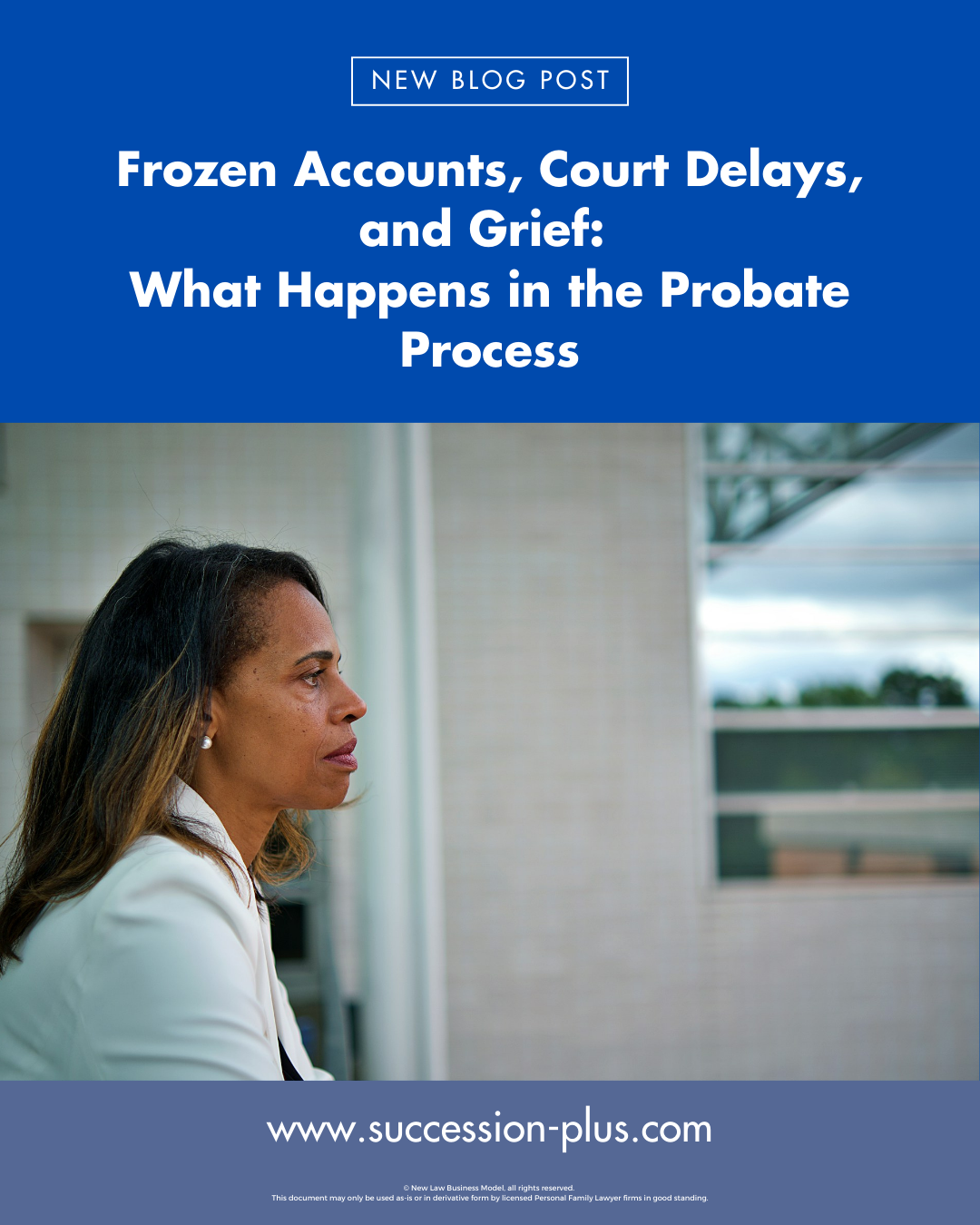What Is Probate in Kansas and When Is It Required?

When someone passes away, their loved ones are often left not only with grief but also with a stack of legal and financial decisions. In Kansas, many of those decisions are shaped by a process called probate.
Understanding how probate works—and whether you can avoid it—is one of the smartest moves you can make to protect your family’s time, money, and peace of mind.
What Is Probate in Kansas?
Probate is the legal process of validating a will and distributing a person’s assets after death. If there’s no will, probate still happens—but the state determines who inherits what.
In Kansas, probate is handled through the district court of the county where the deceased lived. The court ensures that debts and taxes are paid and that remaining assets are passed to the rightful heirs.
A few key terms to know:
- Executor: The person named in the will to carry out its terms.
- Administrator: Appointed by the court when there is no will.
- Estate: Everything the deceased person owned at the time of death.
Probate in Kansas can take anywhere from six months to more than a year, depending on the complexity of the estate and whether any disputes arise.
When Is Probate Required in Kansas?
Not all assets need to go through probate. Whether the process is required depends largely on how well the estate was planned in advance. That’s why estate planning isn’t just helpful—it’s essential.
Here are three key factors that determine whether probate will be required in Kansas:
1. Presence (or absence) of a will
If there is a valid will, probate is used to carry it out. If not, the court distributes assets based on Kansas intestacy laws.
2. Value and type of assets
Kansas offers a simplified probate process for small estates valued under $75,000. But anything above that, or involving certain types of property, generally requires formal probate.
3. Ownership structure
Assets held jointly (like a shared bank account or jointly owned home) usually pass directly to the surviving co-owner. The same is true for accounts with named beneficiaries or those marked “payable on death.”
Let’s say your father passed away and left a house in his name only, a bank account without a beneficiary, and no trust. Those assets will likely go through probate—even if he had a will.
The Probate Process in Kansas: Step-by-Step
Understanding the general flow of probate can help you anticipate what’s ahead:
- File the will with the court (or notify the court there is no will).
- Notify heirs and creditors. This gives people time to make claims against the estate.
- Inventory the assets. This includes real estate, personal property, financial accounts, and more.
- Pay outstanding debts and taxes. The executor or administrator handles this, often with help from an attorney.
- Distribute remaining assets. Once the court is satisfied, the rest goes to the heirs.
While this might seem straightforward, even one missing form or dispute among heirs can delay things significantly.
Can You Avoid Probate in Kansas?
Absolutely—and many people do with a little planning. Some of the most effective tools include:
- Revocable Living Trusts: These allow you to transfer ownership of your assets into a trust during your lifetime. You keep control, but when you pass away, the assets go directly to your beneficiaries without court involvement.
- Beneficiary Designations: You can name beneficiaries on life insurance, retirement accounts, and even some bank accounts. These assets bypass probate automatically.
- Transfer-on-Death Deeds: In Kansas, you can file a TOD deed for real estate. This means your home will transfer directly to your chosen person upon your death—no court required.
Using one or more of these strategies can spare your family from months of court proceedings and unexpected costs.
Real-Life Example: When Probate Catches You Off Guard
Imagine this: A Kansas family loses their father suddenly. He had a will, but his house and investment accounts had no beneficiaries or joint owners. The family assumed everything would transfer easily—but instead, they spent nearly a year in probate, juggling court dates, filing deadlines, and legal fees.
They were trying to honor their father’s wishes but got stuck in a bureaucratic maze instead. All of it could’ve been avoided with a trust or updated account designations.
When to Hire a Probate Attorney in Kansas
While some estates are simple enough to manage alone, you should consider hiring a probate attorney if:
- The estate includes real estate or business interests
- There are disputes among heirs or beneficiaries
- There’s no will or an outdated one
- The executor feels overwhelmed or unsure
- Debts or tax issues complicate the process
A good Kansas probate attorney doesn’t just guide you through legal steps—they help reduce family tension, protect assets, and speed up resolution.
If you're evaluating who to hire, consider asking questions like:
- How many probate cases have you handled in Kansas?
- What are the most common delays, and how do you prevent them?
- Do you offer flat-fee services or charge hourly?
- Will you manage creditor communications and court filings directly?
- Can you help with estate planning to avoid probate next time?
Final Thoughts: Make the Process Easier for Your Loved Ones
Probate can be emotionally and financially draining—especially when it arrives unexpectedly. The good news? With the right information and guidance, you can either navigate it smoothly or avoid it entirely.
At Succession Plus, we help Kansas families understand their options and build estate plans that keep their wishes intact and their families out of court.
If you’re facing probate now—or want to make sure your loved ones never have to—schedule a free consultation. Let’s make a clear, legally sound plan for the road ahead.





